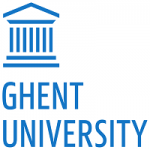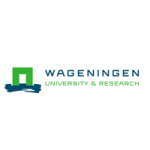项目介绍
Introduction
Ductal carcinoma in situ (DCIS) is considered a preliminary stage of breast cancer, but most DCIS cases do not progress to invasive cancer. Currently, because we cannot distinguish harmless cases from those that may advance, nearly all women with DCIS undergo aggressive treatments like surgery (even mastectomy), with or without radiotherapy. Our goal is to avoid unnecessary treatments for low-risk DCIS, preserving survival and quality of life.
The “Direct-DCIS” project, launched under the Dutch National Science Agenda (NWA) in 2024, aims to address this. Through advanced AI and large patient datasets, this project will develop a model to predict the likelihood of DCIS progressing to invasive cancer. This research involves a diverse team—epidemiologists, radiologists, pathologists, AI experts, health economists, and patients—working together to make precise, patient-centred care possible.
The Health Technology Assessment (HTA) group at Erasmus School of Health Policy & Management (ESHPM), in partnership with the HTA group at the Netherlands Cancer Institute (NKI), leads the Work Package on ‘Patient Preferences and Health Technology Assessment’, to support evidence-based treatment decisions for DCIS.
Job description
This vacancy is for a PhD candidate who will principally focus on obtaining insights into preferences for low-risk DCIS management. The PhD candidate’s job description will be to determine (1) what impact DCIS-risk forecasting has on women’s preferences for DCIS management; (2) what preferences DCIS women and health stakeholders have for different DCIS management characteristics and which trade-offs they make; (3) what uptake of DCIS active surveillance scenarios can be expected for (different subgroups of) low-risk DCIS women; (4) what factors influence (non-)adherence most in DCIS active surveillance treatment; and (5) how to integrate and weight DCIS women’s preferences into an early HTA best. Hereto, the candidate will develop and conduct a mixed method approach, including literature study, interviews and focus groups with DCIS women and health professionals, discrete choice experiments, and natural field experiments. The PhD candidate will work closely with another PhD—who is constructing a dynamic cost-effectiveness model based on national retrospective and prospective data—on these tasks. Besides research responsibilities, the PhD candidate will also participate in our teaching programs (up to 0.15fte) and be given opportunity to learn and develop knowledge and skills i.a. by taking graduate courses.
Job requirements
The successful applicant for this position is expected to have a recent or almost completed relevant MSc degree in health economics, behavioural economics, health sciences, social sciences, or epidemiology. The applicant should be a collaborator and flexible thinker, intensely and demonstrably interested in qualitative and quantitative research, patient/societal preference research, and oncology particularly breast cancer. The applicant should be motivated to participate in an interdisciplinary research program and to learn in situations that are beyond their current capabilities. The ideal candidate has an interest and preferably experience in qualitative (e.g. semi-structured interviews, focus groups) and quantitative research methods (e.g. discrete choice experiments). Knowledge of and experience in preference measurement are a distinct and desirable advantage. The applicant must have excellent communication and writing skills in both Dutch and English.
Employment conditions and benefits
We offer you an internationally oriented and varied job in an enthusiastic team, with excellent working conditions in accordance with the Collective Labour Agreement for Dutch Universities (CAO-NU).
The start date of this position is 01-APR-2025 and you will be based at Erasmus School of Health Policy & Management (ESHPM). This position is for 1 fte. The salary ranges from a minimum of € 2.901 to a maximum of € 3.707 gross per month Scale PhD on a fulltime basis (38 hours), in accordance with the CAO-NU. The contract is entered into for the duration of (contractduur).
Everything else we offer you, you can find below!
– Everything you need for a good work-life balance: the option to work from home in consultation with your manager, 41 days of paid leave with a 40 hour contract, 8% holiday pay and an 8.3% end-of-year bonus, and a significant discount on a subscription for our on-campus sports centreOpens external!
– Sustainable, inclusive and diverse work environment with an open culture, where you can be yourself and we pay attention to each other and to the world around us. Make the most of our bicycle budget, or join networks such as Young@EUROpens external, FAME or QuEUR.
– Time and space for your development in the broadest sense: development days and a personal career budget and free access to our university library.
– Good pension with ABP that EUR contributes 2/3rds towards, discounts on various collective insurances with Zilveren Kruis Achmea, Loyalis, and Allianz, and compensation for travel, working from home and home internet use.
– Are you currently combining your job with parenthood, or do you want to do so in the future? EUR offers partially paid parental leave and fully paid additional birth leave for partners, and our campus features a daycare (daycare not paid for by EUR).
– Moving to the Netherlands for your job with EUR? Then you may be eligible for the 30%-ruling if you meet the requirements of the Belastingdienst (Dutch tax agency), and with our Dual Career Programme we will also help your partner find the right job for them.
Employer
Erasmus University Rotterdam (EUR) is an internationally oriented university with a strong social orientation in its education and research, as expressed in our mission ‘Creating positive societal impact’. EUR is home to 4.100 academics and professionals and almost 33.000 students from more than 140 countries. Everything we do, we do under the credo The Erasmian Way – Making Minds Matter. We’re global citizens, connecting, entrepreneurial, open-minded, and socially involved. These Erasmian Values function as our internal compass and create EUR’s distinctive and recognizable profile. From these values, with a broad perspective and with an eye for diversity, different backgrounds and opinions, our employees work closely together to solve societal challenges from the dynamic and cosmopolitan city of Rotterdam. Thanks to the high quality and positive societal impact of our research and education, EUR can compete with the top European universities. www.eur.nl.
Faculty / Institute / Central service
Erasmus School of Health Policy & Management (ESHPM) is part of Erasmus University Rotterdam and is responsible for a bachelors and three (international) master programs on health policy, economics and management, serving more than 1,300 students. ESHPM is a multidisciplinary school with research focusing on three main themes: ‘competition and regulation in healthcare’; ‘quality and efficiency in healthcare’; and ‘healthcare management’. The position is offered in the Health Technology Assessment group.
Applying
Please submit your application, consisting of a motivation letter and CV, before the vacancy closing date.
The selection procedure consists of interviews (first round online on Tuesday, February 11; second round in person on the Erasmus University campus on Thursday, February 20).
You can find more information about the EUR on our website www.eur.nl. For more information about this vacancy, please contact prof.dr. E.W. de Bekker – Grob via debekker-grob@eshpm.eur.nl or prof.dr. V. Retel (retel@eshpm.eur.nl)
We look forward to receiving your application.
Persons of all gender identities or expressions, sexual orientations, religions, ethnicities, ages, neurodiversities, functional impairments, citizenships, or any other aspect are welcome to apply and join the EUR community.
联系方式
电话: +31 10 408 11 00相关项目推荐
KD博士实时收录全球顶尖院校的博士项目,总有一个项目等着你!





